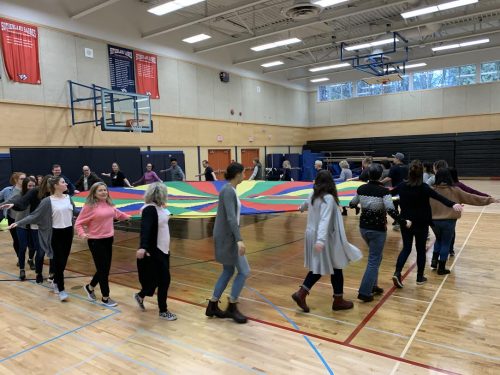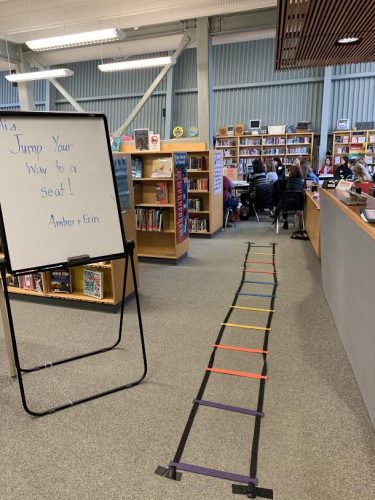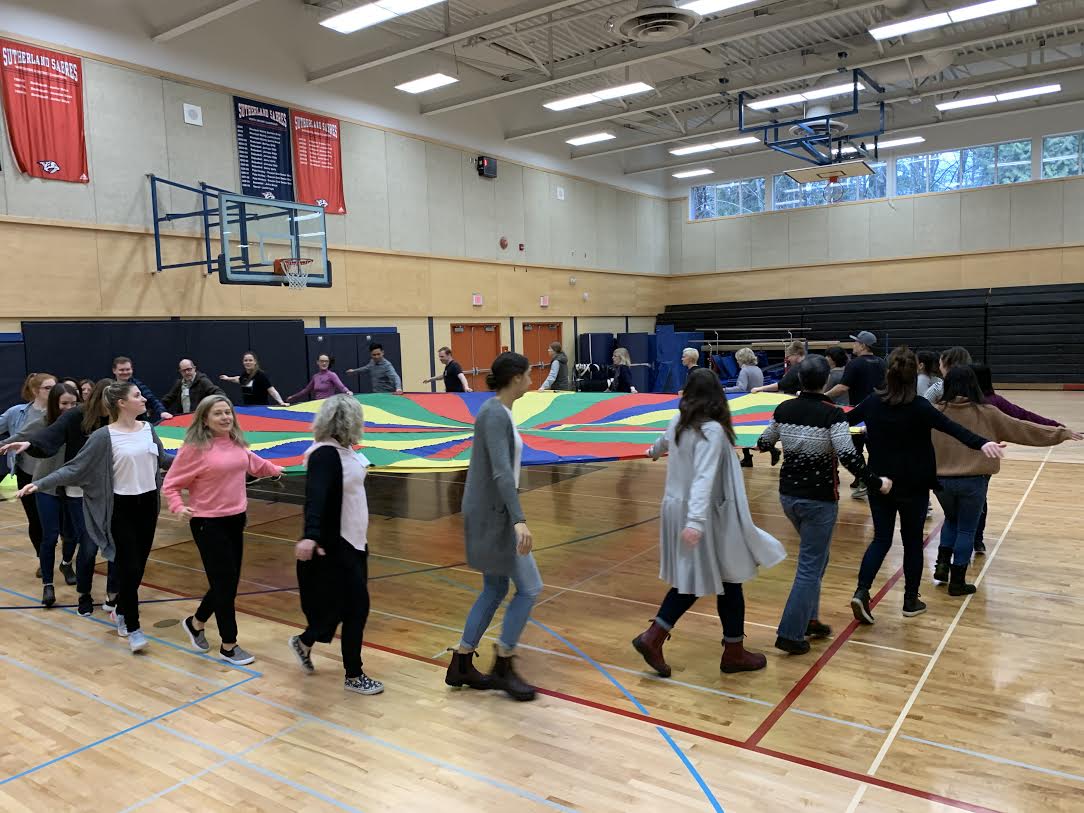PLAY North Vancouver encourages community connection through physical literacy
 When you attempt to put together a cross-sectoral working group of physical literacy advocates, sometimes you end up with allies you wouldn’t have expected. For JoAnne Burleigh of Vancouver Coastal Health, who has been spearheading Sport for Life’s Physical Literacy for Communities (PL4C) initiative across the North Shore of Vancouver, some of the most surprising organizations that came out of the woodwork were North Shore Table Tennis Club, BC Floorball, and Capilano University.
When you attempt to put together a cross-sectoral working group of physical literacy advocates, sometimes you end up with allies you wouldn’t have expected. For JoAnne Burleigh of Vancouver Coastal Health, who has been spearheading Sport for Life’s Physical Literacy for Communities (PL4C) initiative across the North Shore of Vancouver, some of the most surprising organizations that came out of the woodwork were North Shore Table Tennis Club, BC Floorball, and Capilano University.
“Our long-term goal with this project is to have a North Shore-wide physical literacy table. We created great momentum with West Vancouver and Bowen Island for their PL4C two-year intake, and now we are focusing on North Vancouver as they work through their milestones. We’re hoping at the end of these two years that we can combine the two tables,” said Burleigh.
“This work all centres around connection, getting out there and knowing who’s in your community. It doesn’t happen overnight, but you have to keep building those relationships and plugging away with patience, coming from a caring place. We’re all a part of this community, so it is vital to figure out how we can collaborate and support each other.”
The biggest milestone so far has been successfully enlisting strong representatives from the health, recreation, education and sport sectors, with Capilano University playing a large role. On top of the fine-tuning the sector representatives are doing within their fields, they’re also looking for ways to collaborate on larger projects. Recently, their community made headlines for introducing the Living Streets program, which encourages residents “to walk for physical and mental health, and to seek creative solutions to active transportation barriers in their communities.”
Some of the partners they’ve acquired include the North Van Recreation Commision, the City of North Vancouver, North Vancouver School District, the Squamish Nation, North Shore Girls Soccer, and North Shore Disability Centre. They’ve all agreed that a core part of their vision is to be mindful of inclusion and to make activities and opportunities accessible.
“One of the things we’re currently researching for funding is the potential opportunity to build an accessible swing on the North Shore, one that people with physical disabilities can wheel on to. Also, the North Shore Disability Resource Centre ordered a physical literacy circuit you can paint on the pavement, and then shared it with the members of the table. The North Vancouver School District has now used it on a number of their elementary school grounds,” Burleigh said.

They’ve mobilized the Physical Literacy 101 workshop among all the sectors, hosted a professional development day for teachers and education assistants, and have widely shared Sport for Life resources to get everybody on the same page and speaking the same language. By getting people informed and engaged around physical literacy and physical activity at the community level, they hope to create opportunities for people to experience the value of an active lifestyle and encourage them to get moving.
“I’d love to see people out there moving their bodies more, being outside, participating in activities with their families and taking advantage of opportunities that are accessible to them. Sometimes people get intimidated because they don’t want to go to the gym or run a marathon, but if we can create an opportunity for them to lead active, healthy lives, that’s what we’d like to accomplish. The whole message is that we want people to have the motivation and confidence, and competence to move their bodies and get involved in the things they want to do,” she said.
Project manager Tom Jones has been wowed by the community’s proactive approach, and applauds their commitment to cross-sectoral collaboration. According to him, they’ve exemplified the value of connection.
“One thing that’s being demonstrated as the physical literacy network continues to grow on the North Shore is that this work is all about relationships. The more of these working groups we develop, and the more they begin to collaborate with each other, the better chance we have of accomplishing large-scale culture change,” said Jones.
For more information on physical literacy initiatives like this, visit physicalliteracy.ca.

